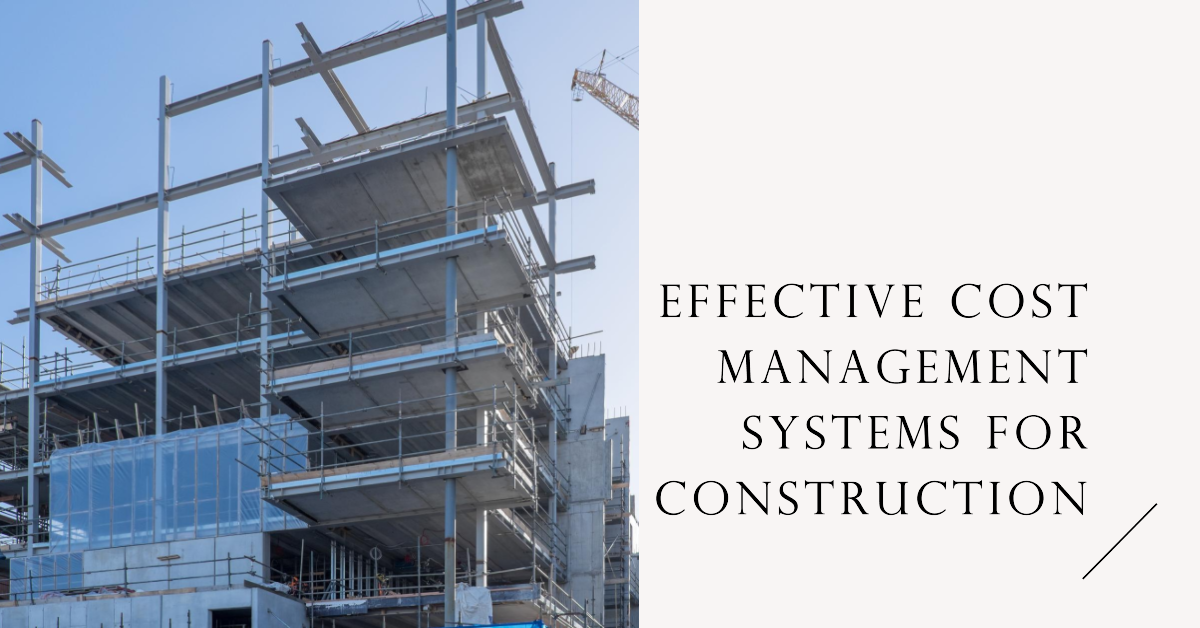Cost management systems are essential for construction projects of all sizes. They help project managers track costs, identify potential overruns, and make informed decisions to stay on budget.
The construction is an important industry, with projects often spanning various scales and complexities. One of the key factors that can make or break a construction project is effective cost management.
Construction cost management is the process of estimating, budgeting, and controlling costs throughout the project life cycle, with the objective of keeping expenditures within the approved budget.
In this article, we will cover the importance of Cost Management Systems in Construction, exploring their significance, key components, and the evolving field of construction cost management.
I. The Importance of Cost Management Systems in Construction
The significance of cost management systems in construction cannot be overstated.
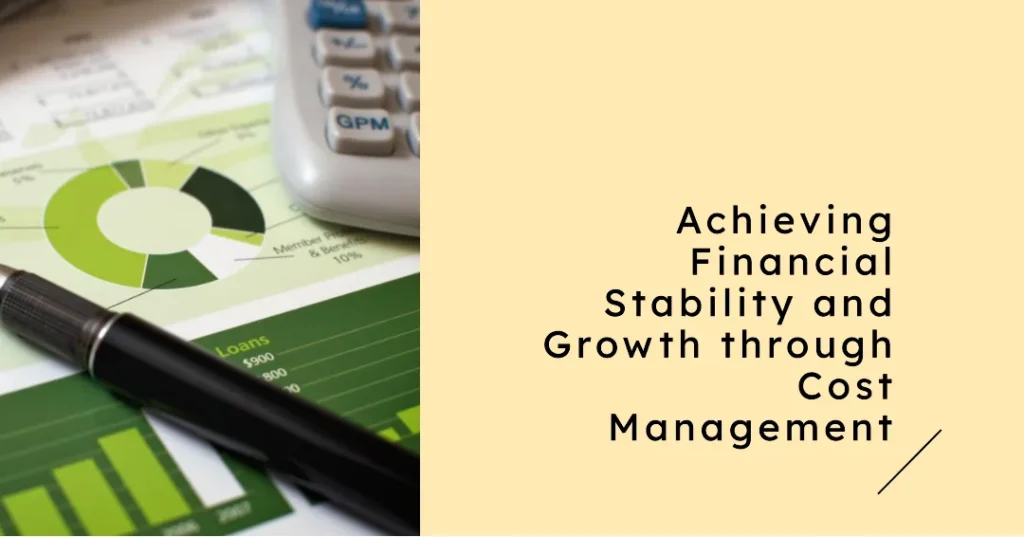
It serves as the financial compass that guides a project from initiation to completion. Effective cost management brings several benefits, including:
- Budget Adherence: Ensures that the project stays within the predefined budgetary constraints. This ensures that the financial compass of the project remains true, preventing unwarranted deviations that can harm the entire undertaking.
- Risk Mitigation: Cost management operates as a proactive shield against potential financial risks. By identifying these risks early in the project’s lifecycle, it empowers project managers to take strategic measures, protect the project against unforeseen challenges that may arise.
- Stakeholder Confidence: Builds trust and confidence among project stakeholders, including investors, clients, and regulatory bodies. Stakeholders can confidently invest their support, knowing that extensive financial management is in place.
- Project Success: Beyond the financial bottom line, effective cost management lays the groundwork for a project that not only meets its objectives but stands as a shield to efficient planning and execution.
In essence, cost management is not just about balancing the books; it’s about steering the entire construction ship towards a destination of success and longevity.
II. Cost Estimation in Cost Management Systems
Cost estimation is the process of forecasting the total cost of a construction project. It involves identifying and quantifying all of the resources that will be required to complete the project, including labor, materials, equipment, and overhead costs.
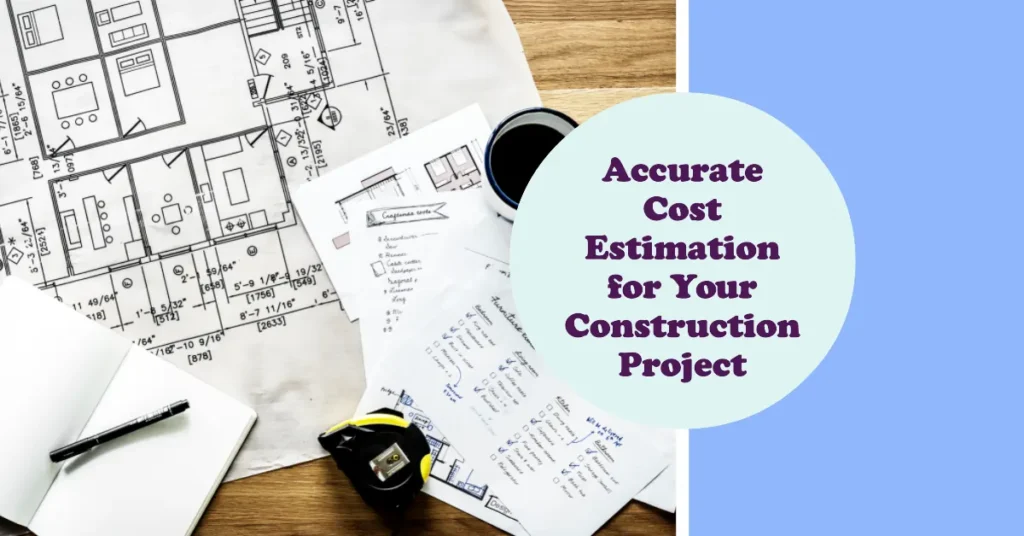
A. Types of cost estimates
There are two main types of cost estimates: order-of-magnitude estimates and detailed estimates.
Order-of-magnitude estimates are used early in the planning process to get a general idea of the cost of the project. Order-of-magnitude estimates are like the compass, offering a general direction for financial planning.
Detailed estimates are more precise and are developed once the project scope and design have been finalized. Detailed estimates are the backbone of accurate budgeting and financial planning.
B. Accurate Cost Estimation
Accurate cost estimation is essential for effective cost management. Overestimating costs can lead to missed opportunities, while underestimating costs can lead to financial losses. Striking the delicate balance requires a deep understanding of the project’s details and a keen eye for detail.
C. Common mistakes in cost estimation
Some of the most common mistakes in cost estimation include:
- Failing to account for all of the costs involved in the project
- Using inaccurate historical cost data
- Not factoring in unexpected costs, such as unforeseen site conditions or changes in the scope of work
Cost estimation software can help to improve the accuracy and efficiency of the cost estimation process. It can also help to identify and mitigate potential cost risks.
III. Cost Control in Cost Management Systems
Cost control is the process of monitoring and managing project costs to ensure that they stay within the approved budget. It involves tracking actual costs against the budget, identifying and addressing cost variances, and taking corrective action as needed.
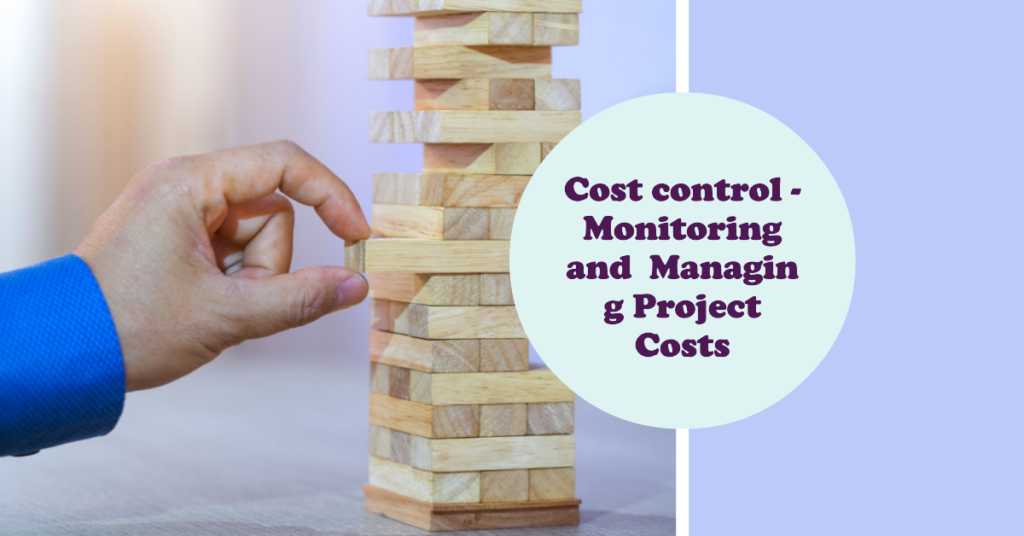
Cost control is essential for the financial success of any construction project. Overspending on a project can lead to financial losses, delays, and disputes. Effective cost control helps to ensure that projects are completed on time, within budget, and to the required quality standards.
A. How Cost Control Works
The cost control process typically involves the following steps:
- Developing a budget: The budget is a plan that lists out how much money should be spent on different parts of the project.
- Tracking actual costs against the budget: Once the project is underway, it’s like keeping an eye on how much money is actually being spent. This step helps us see if we’re sticking to the plan or if there are surprises.
- Identifying and addressing cost variances: Sometimes, we might notice that we’re spending more money than we planned. This step is about figuring out why that’s happening and doing something about it to get back on track.
- Taking corrective action as needed: If there are money problems, like spending too much, we need to take action to fix them. It’s like adjusting the sails on a boat to make sure we’re going in the right direction.
B. Common pitfalls in cost control
Some of the most common pitfalls in cost control include:
- Failing to regularly monitor and track project costs.
- Not having a clear process for identifying and addressing cost overruns.
- Not being proactive in taking corrective action when cost variances are identified.
C. Staying on Track with Tech
Construction management software can help to improve the efficiency and effectiveness of the cost control process. These tools act like a helper, making sure we stay on course with our budget and catch any money problems early on.
As construction projects move ahead, keeping a close eye on the money isn’t just about numbers—it’s about making sure everything stays on the right financial path and the project finishes successfully and on time.
IV. Cost Reporting in Cost Management Systems
Cost reporting is the process of collecting, analyzing, and communicating information about project costs. It is an important tool for project managers to track progress, identify potential problems, and make informed decisions about the project.
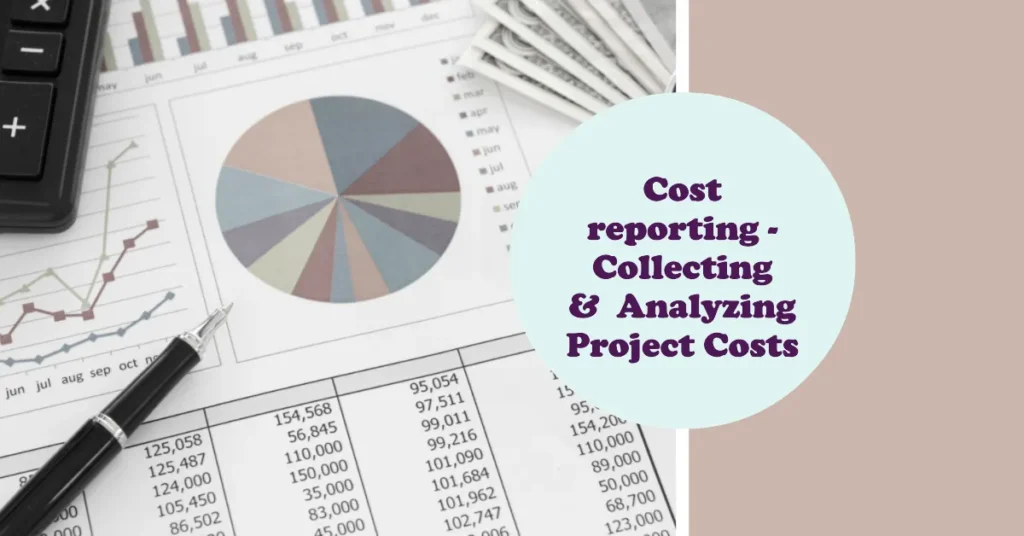
A. Purpose of cost reporting
Cost reporting serves to inform stakeholders about the project’s financial health, ensuring transparency and fostering trust.
The main purposes of cost reporting are to:
- Track project progress and identify any potential problems
- Make informed decisions about resource allocation and project scope
- Ensure compliance with budget and contractual requirements
- Improve communication and collaboration between project stakeholders
B. Construction cost report components
Construction cost reports typically include the following information:
- Project budget
- Actual costs
- Cost variances
- Explanations for cost variances
- Forecasted costs
C. Benefits of construction cost reporting
Construction cost reporting offers a number of benefits, including:
- Transparency: Builds trust with stakeholders.
- Informed Decision-Making: Enables data-driven decisions.
- Accountability: Holds project teams accountable for financial outcomes.
D. Tools and apps for construction cost reporting
There are a number of tools and apps available to help construction companies with cost reporting. Some of the most popular options include:
- Construction management software
- Spreadsheet software
- Cloud-based cost reporting tools
V. Conclusion
In conclusion, effective construction cost management systems are essential for the success of any construction project. It can help to ensure that projects are completed on time, within budget, and to the required quality standards.
As we look to the future, technological advancements, including artificial intelligence, machine learning, and data analytics, will play a crucial role in enhancing the accuracy, efficiency, and decision-making processes of construction cost management systems.
Overall, the future of construction cost management is likely to be characterized by a greater emphasis on data-driven decision-making, the use of innovative technologies, and a focus on collaboration and transparency.

